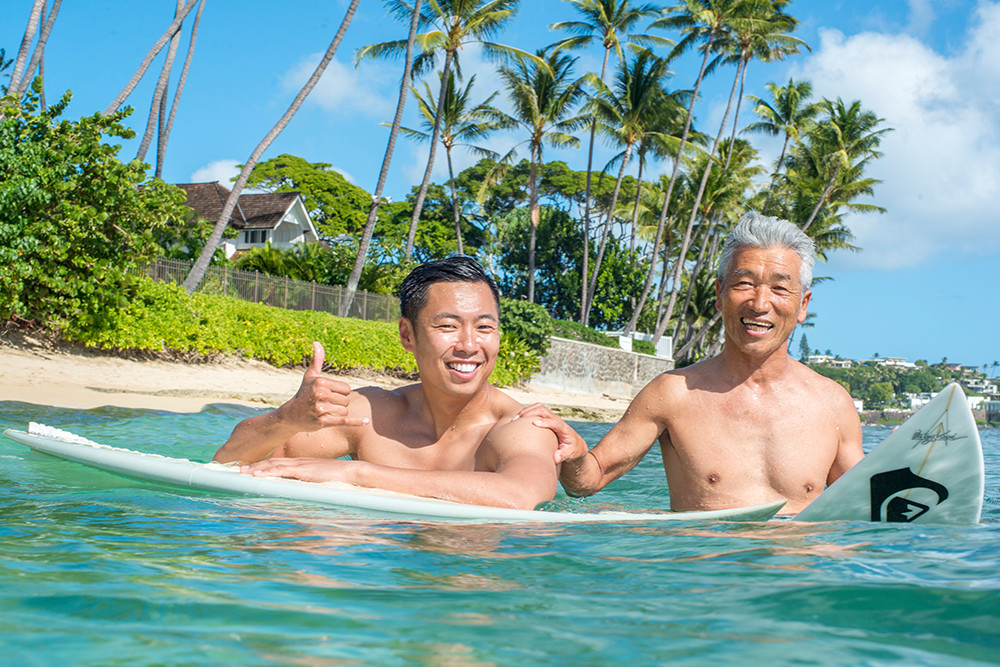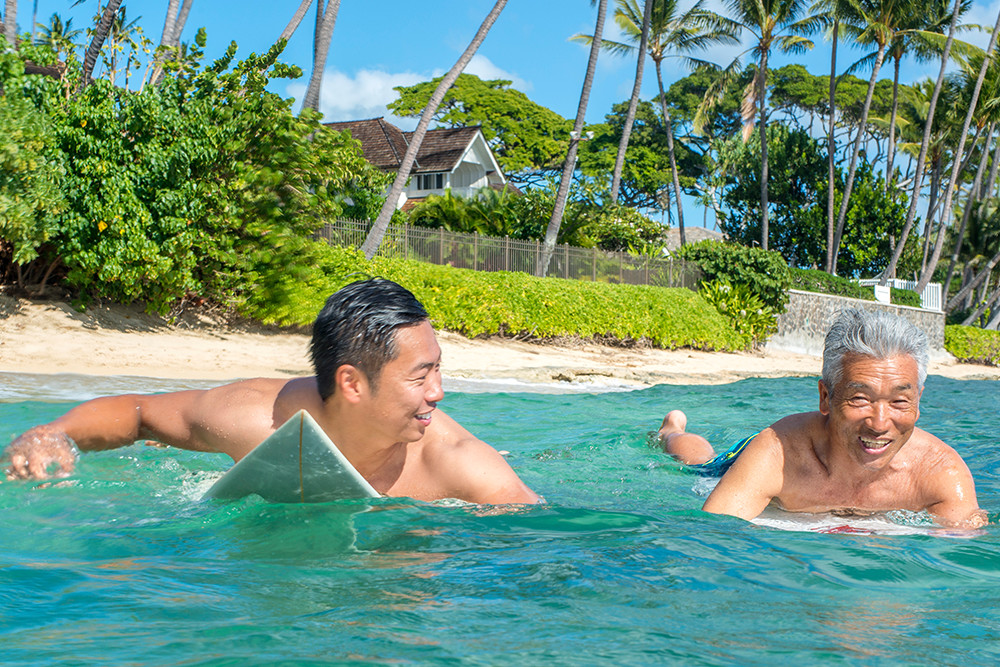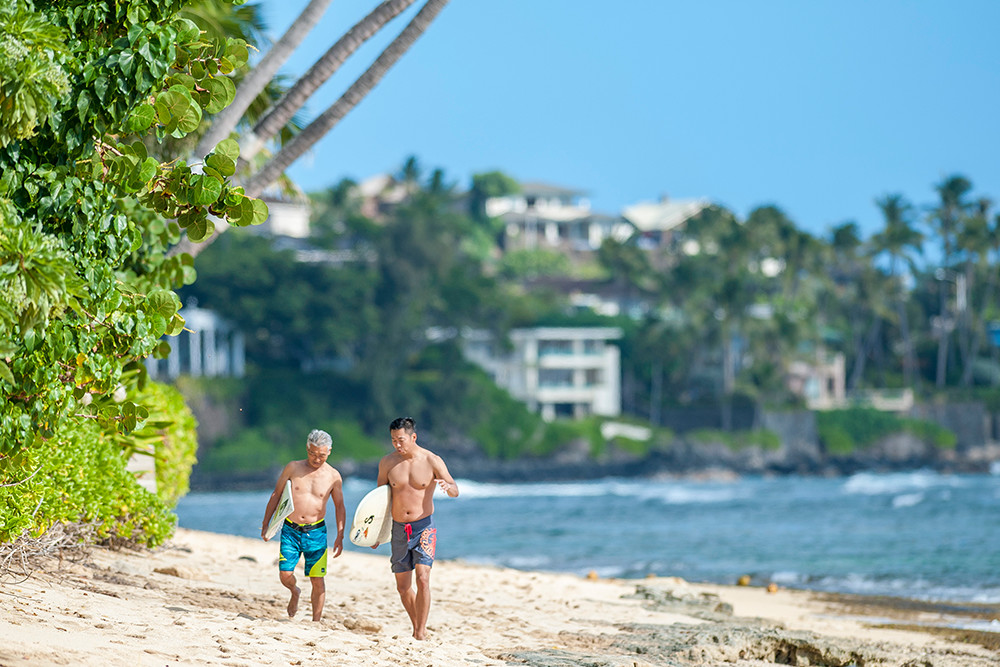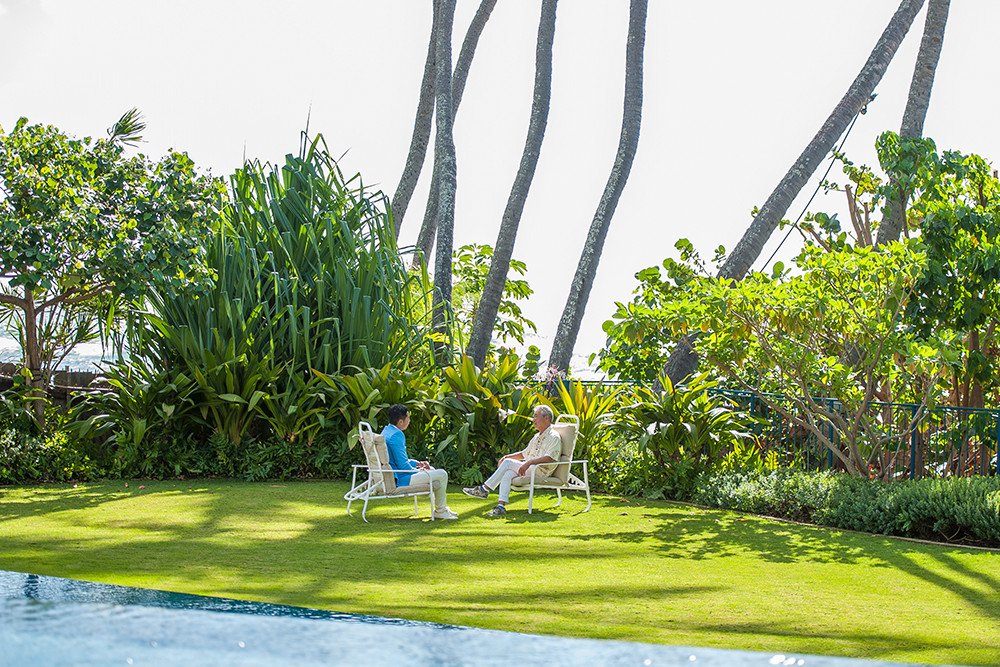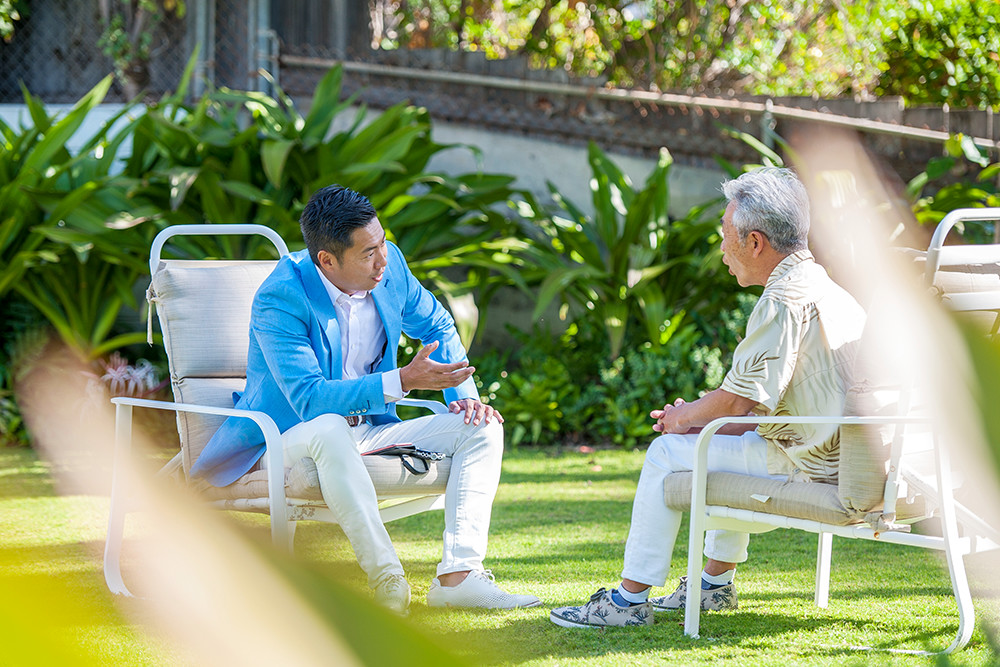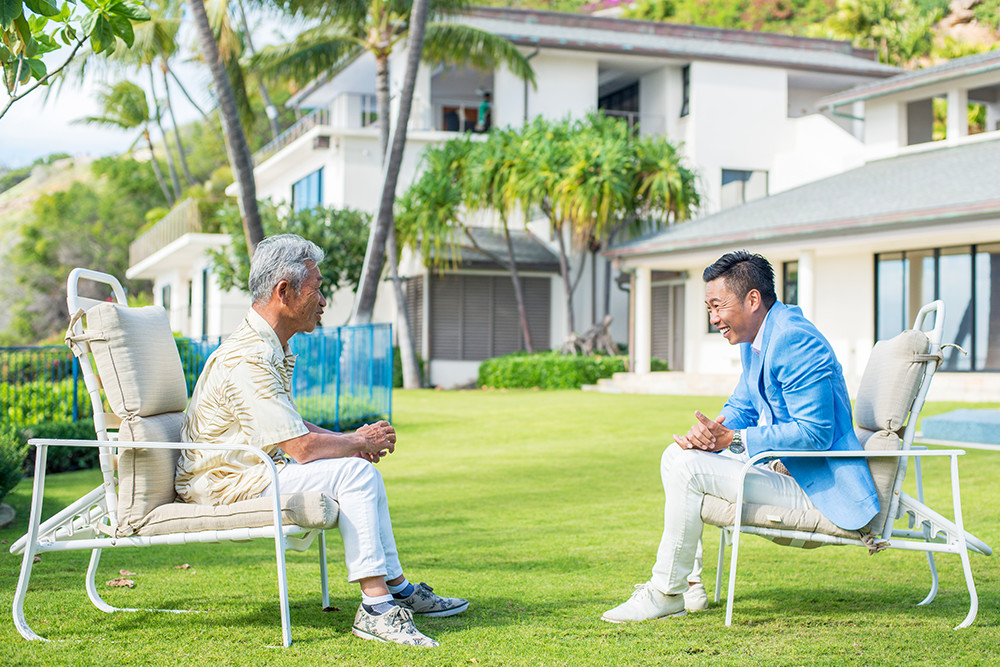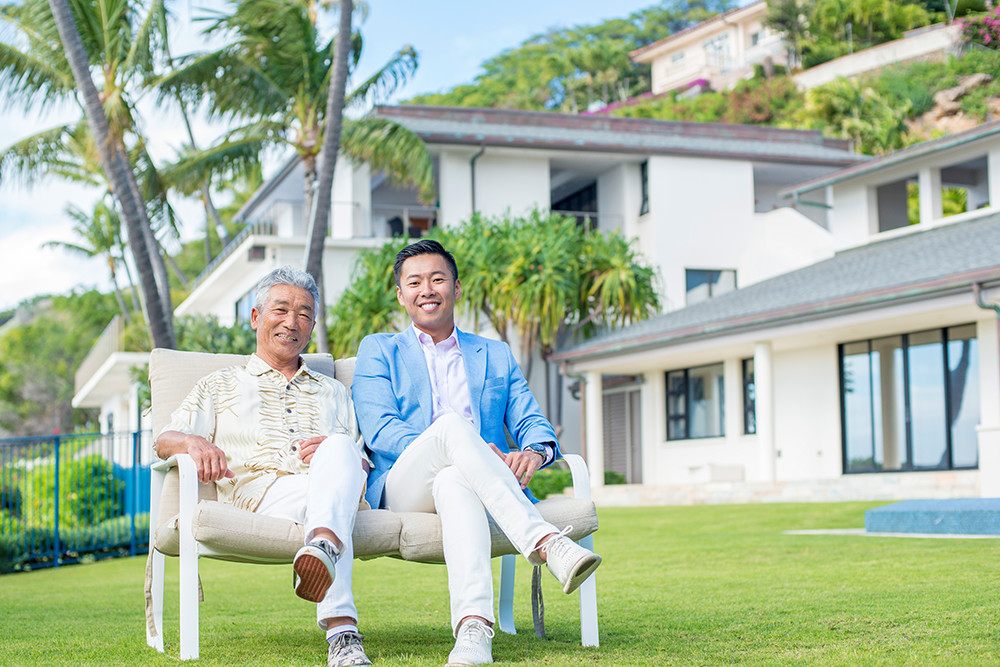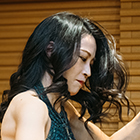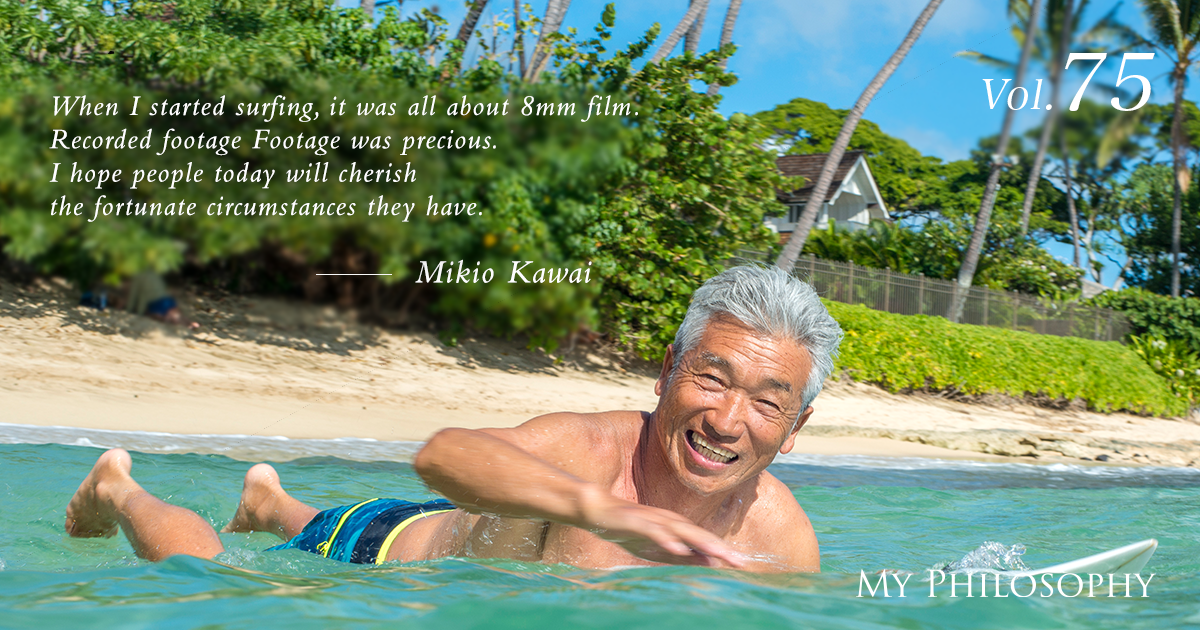
Mikio Kawai, Japan's first professional surfer, has contributed to the development of Japanese surfing techniques and culture for many years. As he turns 70 this year, we asked him to reflect on his surfing life, which has spanned more than half a century.
Profile
Vol.75 Mikio Kawai
Professional Surfer
Born in Chiba Prefecture in 1948, Kawai discovered surfing at the age of 16 and has been deeply engrossed in it ever since, achieving numerous successes in competitions. Around the age of 20, he also began shaping surfboards, competing in tournaments using boards he shaped himself. By incorporating feedback from professional surfers using his boards and conducting his own tests through daily sessions in the ocean, Kawai constantly refined his designs, ensuring they remained innovative, functional, and smooth. He won the first All Japan Surfing Championship in 1966 (a total of four wins), and the All Japan Longboard Surfing Championship in 1983 (a total of three wins). In 2015, he triumphed in the JPSA Shortboard Masters Pro in Niijima.
Currently, Kawai runs the surf shop 'Kawai Surf Gallery' in Kamogawa, while also serving as an advisor for the JPSA (Japan Pro Surfing Association), the JPSA Longboard Director, and the president of the Kamogawa Surfing Club.
Riding Waves on an Air Mattress
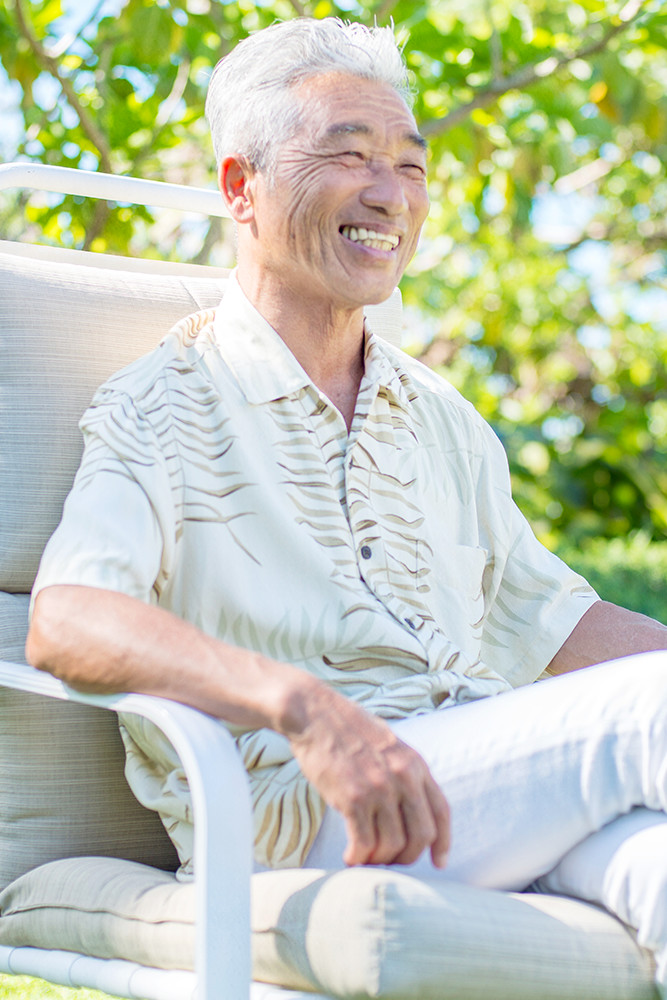
Since I lived only about two or three minutes from the beach, I started riding waves using boards or just my body from around the fourth grade of elementary school. When I was in middle school, “inflatable mattresses” were beginning to be used for the beach. I would inflate them fully, make them firm, and then sit on them to slide over the waves. As I kept trying to stand, eventually, I learned to ride standing up. I guess I was good at balancing on something that wobbly. On Kamogawa’s beach, I was the only one standing up and riding waves on an air mattress—everyone else was just lying flat on theirs. I’ve always loved sliding and skating since I was a kid. At night, I would ride my bicycle to a nearby hill and roller skate, or on cold mornings, I’d pour water on the yard to freeze it and pretend to ice skate.
In 1964, while watching the Tokyo Olympics opening ceremony on TV, a friend called me, saying, “I borrowed a board from a foreigner at the beach.” I immediately ran to the beach. At that time, surfing wasn’t a thing in Japan yet. I had only seen pictures in magazines and knew that there were boards you could stand up and ride. Six locals from Makaha, Hawaii, and some from the Navy had arrived in a Volkswagen van, and they lent us longboards. They crouched low and said, “This is how you ride.” Compared to the air mattress, surfing on a longboard was much easier, and before long, I was standing up and even waving my hands confidently.
Someday, Riding the Waves of Tahiti
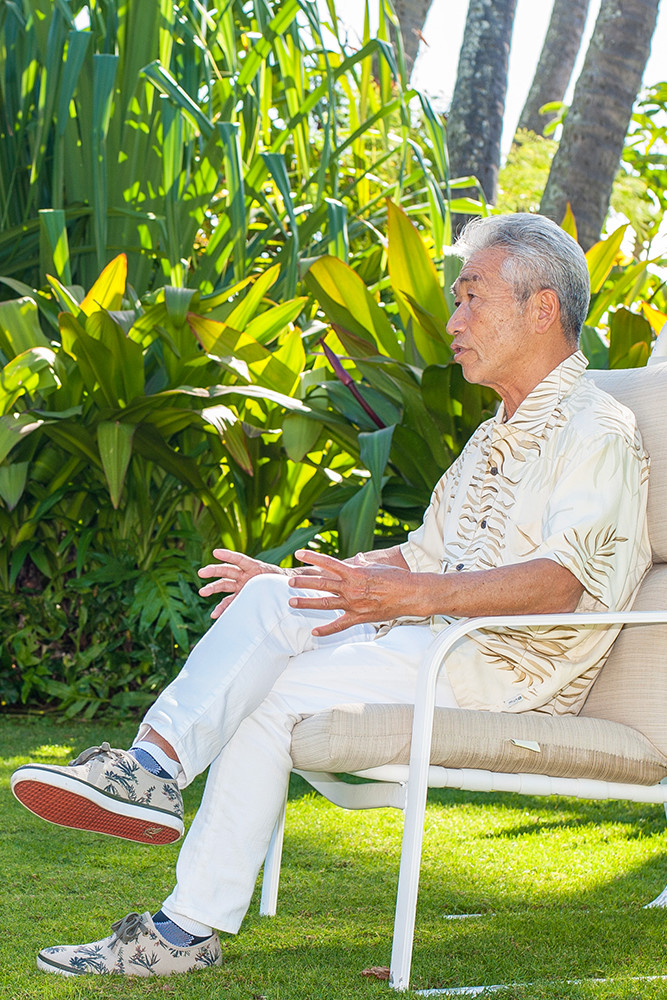
I’m often asked, “What’s so attractive about the waves?” so I answer back, “I like how the waves completely disappear onto the sandy shore. I love the sight of them fading away after breaking.” The charm of surfing lies in the moment—whether you catch the wave in front of you or not. I often think, “I should have turned and ridden that one,” or, “Maybe I could have caught it late.” Even when you’re determined to catch the next one, you often end up missing it, leaving you with a sense of frustration. As I get older, even if I see a wave and think, “I can catch this one,” my body doesn’t always follow. There’s always something—if only my board were a bit longer, or if I had started my slide earlier. Maybe I’m just captivated by the allure of waves. I’m always wondering, when will the next wave come, and what kind of wave will it be?
When there’s a wave I couldn’t catch, it makes me want to ride it even more, and I think, “Next time, I won’t fail.” I remember the times when I rode a wave successfully, but what sticks with me more are the missed opportunities—thinking, “My position was off,” or “If I had been just a little further out, I could’ve caught it,” and it’s frustrating. I used to resist the waves all the time, but my attitude toward them has gradually become more straightforward.
The really big waves, they’re in Hawaii. The first time I went to Hawaii, I was about 20 years old. The waves at Makaha Bowl were huge, around 12 feet, and I couldn’t ride it. Someday, I want to ride the waves in Tahiti. There’s a place called “Teahupo’o” that’s famous worldwide for its massive waves. I don’t know if I’ll be able to ride them, but even just seeing them would be enough for me. I’d love to go someday.
The More Precious It Is, the More Serious You Become
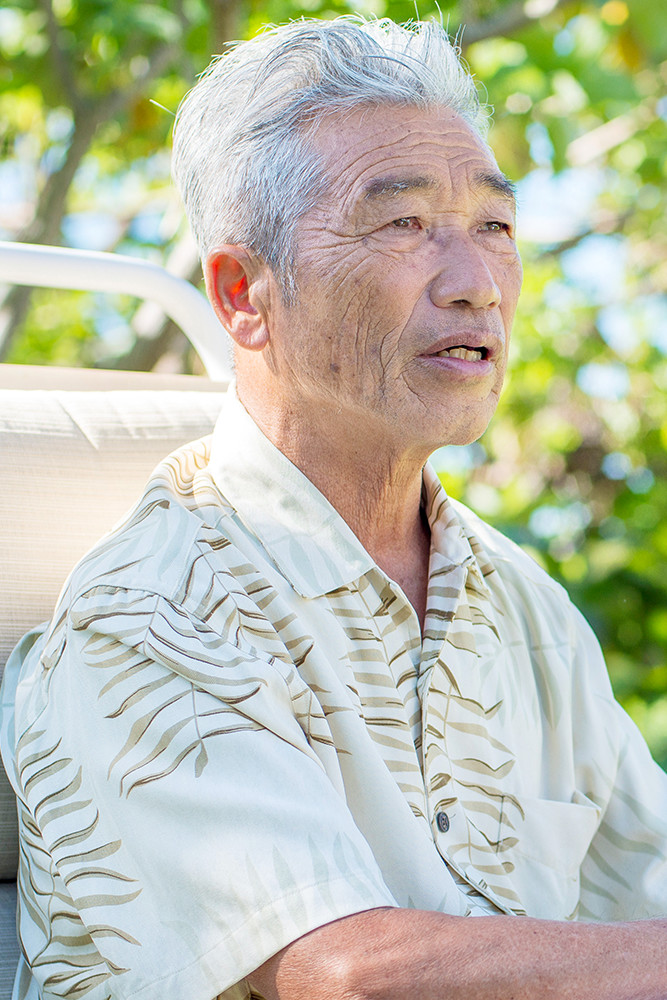
In surfing competitions, being second place is not satisfying. Since I happened to win the first All Japan Surfing Championship, I was determined not to fall from that position. I practiced from morning till night, desperately trying to improve. Eventually, I had no choice but to study myself and figure out what I was lacking. Nowadays, you can easily record videos with a smartphone, but back then, I had my friends film me with an 8mm camera. An 8mm film could only capture 3 minutes, and it took a week to develop the film. When I watched the footage, I realized that the image I had in my mind and the way I was actually moving on the 8mm film didn’t match. I spent nights studying the footage, thinking about how I could improve and look better the next time I was filmed.
Today, when we can easily record, I find myself explaining to others while watching the footage, saying things like, “This part of your form needs work.” But I feel that the level of seriousness is different from when I was reviewing my movements on 8mm film. I think it’s important to take advantage of the environment we have now and practice with greater awareness—even down to the fingertips and toes—to become better than before.
The Basic Human Lessons Surfing Teaches
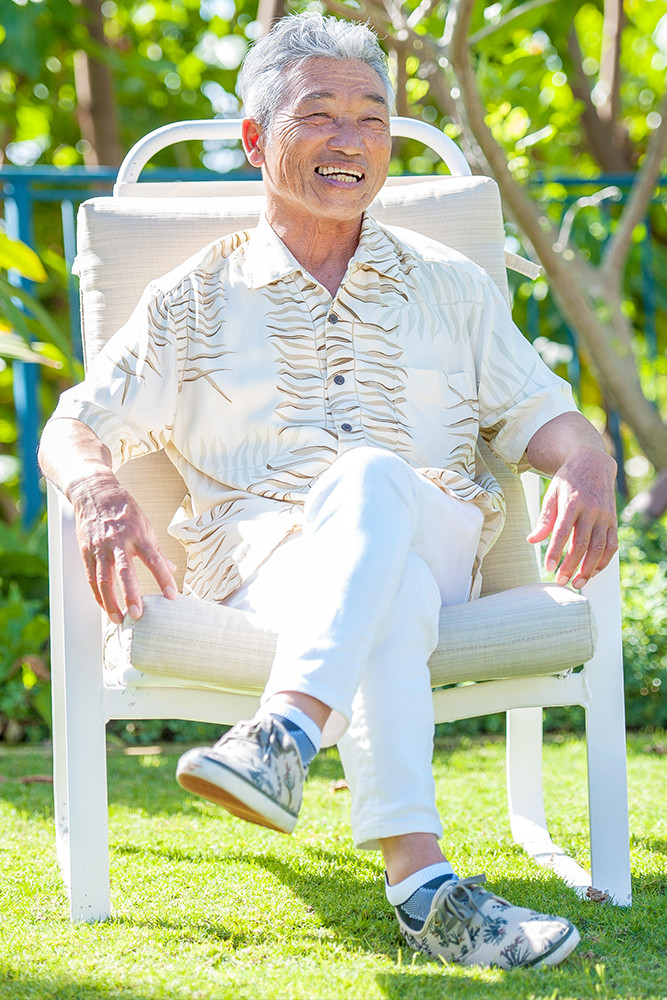
Recently, I’ve started training little by little again. I’ve noticed that my lower body has become weaker due to all the time I spend driving, so I’m mainly focusing on strengthening my core. I often ask myself, “What are you doing, Mikio Kawai? Have you become an old man already?” I wrestle with these internal questions and conflicts. Now, at 70, I feel that many aspects of life are completely different from how they used to be. I can’t casually say things like, “I’ll still be surfing at Sunset Beach when I’m 80.” What hasn’t changed is my desire to ride good waves and surf with style.
Surfing involves many dangers—sometimes you swallow seawater and can’t breathe. When you think you’re done for and then suddenly manage to take a breath, you feel an overwhelming sense of gratitude for the simple act of breathing. I believe there’s a god of the sea. Surfing teaches you how to handle sudden, unexpected events in the water, and in that way, it teaches the basic principles of being human. Perhaps that’s why when you get the delinquents to go try surfing, you see them become more pure and reform themselves.
Kanoa Igarashi has been selected as a member of the Tokyo 2020 Olympic training squad. If surfing had become an Olympic sport when I was the right age, I would have liked to participate as well—aiming for a gold medal, of course.
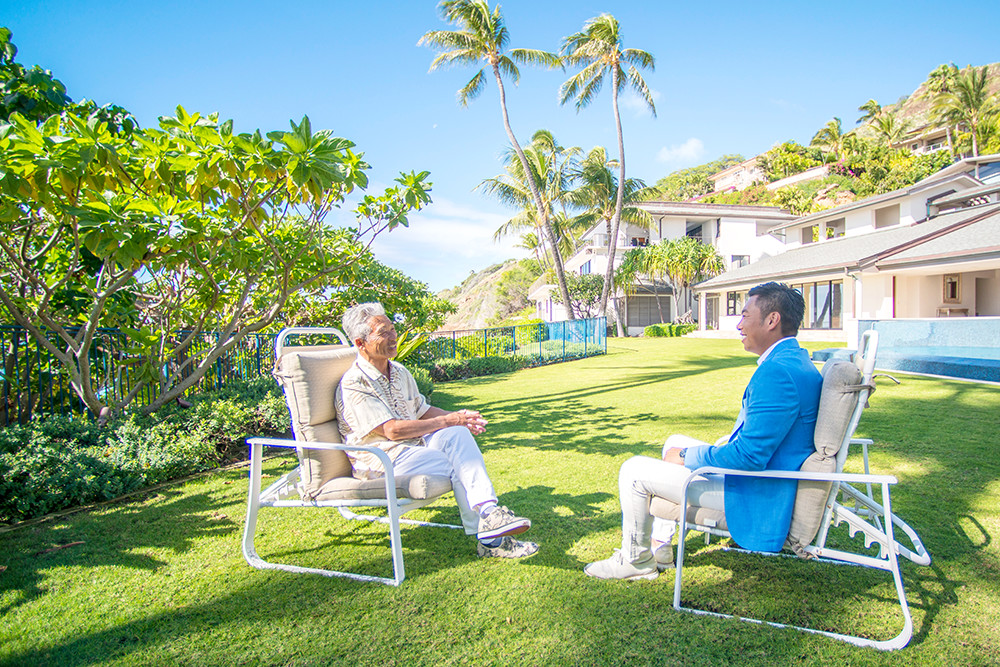
I was thrilled when I heard that this interview would take place at your secondary residence in Kahala, Hawaii, and was curious to see what kind of place it would be. DK, your international mindset and actions are truly admirable!! I’m grateful for how you drew out my thoughts throughout the conversation. I came to Hawaii to remake an old surfing film I created, and despite struggling with jet lag and sleep deprivation, I managed to catch some waves. The moment I watched the footage, my struggle turned into enjoyment, and that was the most rewarding part. During the summer season, I definitely want to surf at the point right in front of this place. Thank you, DK.
Professional Surfer, Mikio Kawai.
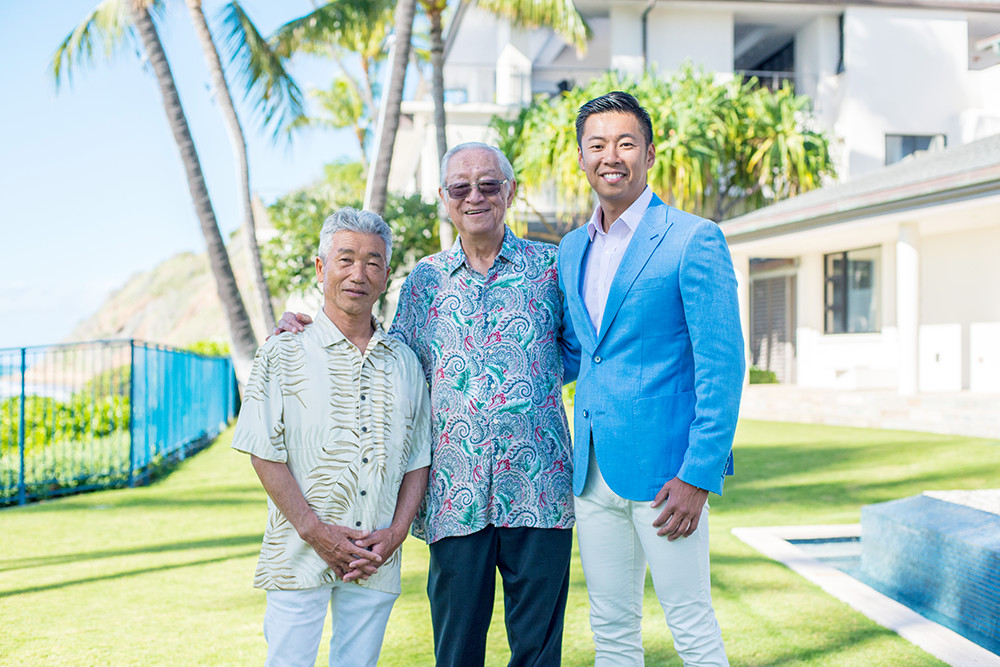
Thanks to the kindness of Mr. Tomio Taki, who appeared in our 54th interview,
we were able to borrow his Honolulu residence, making it possible to conduct the ‘My Philosophy’ interview in Hawaii with the surfing legend Mikio Kawai. Before his 70th birthday on March 5, 2018, we had the opportunity to ask him about his life in surfing and his approach to life. Just like the waves you miss never come back, in life too, it’s essential to prepare and take action so you don’t miss your one shot. ‘If you make a mistake, be sure to correct it by the next time.’ The person Kawai is today is a result of repeated practice, and I deeply resonate with his attitude of continually refining himself no matter how old he gets. Happy 70th birthday! On March 6, 2018, Surf Media reported that a party was held to celebrate the 70th birthday of Mikio ‘Mickey’ Kawai, Japan’s surfing pioneer.On March 6, 2018,Translated by ILI Inc.




